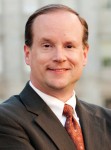A favorite retort from those who believe in policing the speech of others is:
Freedom of speech does not mean freedom from consequences.
This has become a thought terminating cliche for many which prevents deeper consideration of the ethics and morality involved.
Unless there is some way to make certain actions physically impossible, the way to prevent people from performing these actions is to inflict consequences on those who do so. We cannot make murder impossible so, instead, we punish those who murder. The idea is that the threat of punishment will make people restrict their own behavior.
It is exactly the same with speech. We cannot actually prevent forbidden words and ideas from being uttered. Instead, speech is restricted by inflicting consequences on those who utter them. The intention is to make people self-censor, to restrict their own speech in order to avoid punishment.
This is how governments police speech. Yes, some have enough control over the media to prevent things being published but, even then, they are still not able to prevent individuals from saying those things.
When we talk about restrictions on speech we are talking about applying consequences to speech. If saying certain words or expressing certain ideas is punished then speech is not free, restrictions have been applied. Therefore, freedom of speech does mean freedom from consequences.
Those who recite the idea that "freedom of speech does not mean freedom from consequences" really mean "freedom of speech only means freedom from consequences inflicted by the government."
It's really just another way to say "it's only censorship if the government does it." This thinking is usually supported by pointing to the US constitution and explaining that the first amendment only says that the government cannot restrict speech. However, this is only a specific protection of freedom of speech, not a definition of the concept.
The US constitution defines only the rules the US government must operate under so naturally its protection of freedom of speech is limited to attacks from the US government.
If you justify restricting the speech of others with arguments based on the limitations of the US constitution then you don't actually believe in freedom of speech. You just believe in the constitution.
Freedom of speech is more than an amendment. It's a principle, that those with power over us should not use that power to restrict what we can say and, similarly, if we have power over others, our power should not be used to restrict what they can say.
The government is not the only thing with power over us. If you can inflict consequences, you have power. If you can pressure someone's employer into firing them, you have power over them.
Does this mean that we cannot respond to speech in ways which might negatively affect the speaker? Of course not. If someone says something you find distasteful then you have every right to judge them for it and express and act on that judgement. What crosses the line is action deliberately intended to punish the speaker and make people afraid of repeating the speech.
Obviously this only relates to speech in public. It's perfectly reasonable to police speech in your home or business, although even then the consequences should be limited in scope to your home or business. If someone uses racist language in your house, there's no issue with you telling them that they are no longer welcome. What is not reasonable is calling their employer to tell them what they said.
Yes there are grey areas. Is it reasonable to tell mutual friends about their behavior and have them ostracized from the group? Maybe. However, much of what internet activists are doing is well outside of these grey areas.
Am I saying that there should be laws preventing people from punishing speech? Am I saying that there need to be punishments for those who punish the speech of others? No. This is not about legality. It is about ethnics and morality. It is about what should not be done, not what must not be done.
Those who point out that these internet activists are merely exercising their own freedom of speech are right but that does not mean what they are doing is not despicable. Someone who uses racial epithets is exercising their freedom of speech but their behavior is not morally defensible.
Basically:
Read more:

